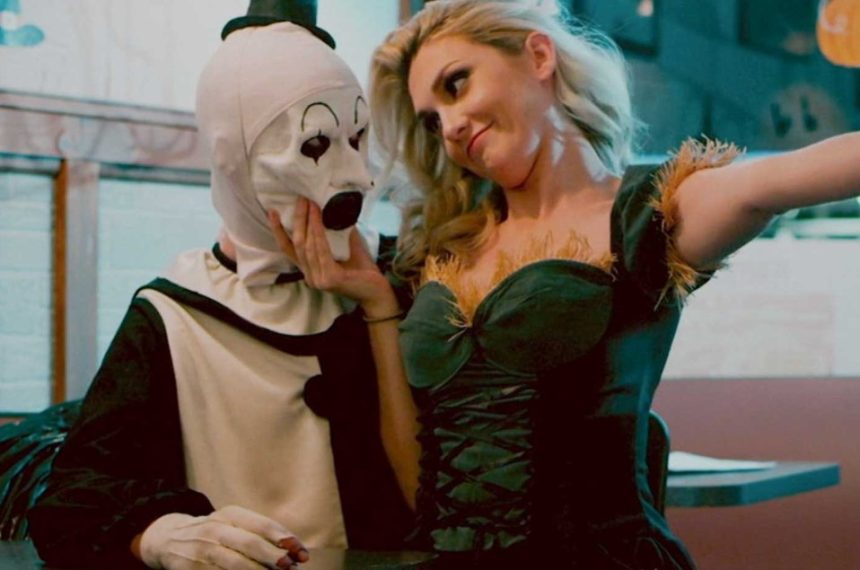Catherine Corcoran Sues Terrifier Producers Over Alleged Exploitation and Unauthorized Explicit Content
A shocking legal battle has erupted in Hollywood. Actress Catherine Corcoran, known for her harrowing part in the cult horror film Terrifier, has filed an action against the film’s directors and producers, professing exploitation, contract breaches, and the unauthorized distribution of unequivocal material.
The action, lodged on Sunday, 26 October 2025, in a civil court in California, throws a dark shadow over one of indie horror’s most profitable success stories.
What began as a small-budget slasher film in 2016 soon converted into an artistic miracle. Terrifier, piloted by director Damien Leone, introduced cult to the grotesque, zany Art the Clown.
With a modest budget of just$ 35,000 to$ 55,000, the film grossed over$ 420,000, according to IMDb, an unanticipated megahit for a grassroots horror design.
The conclusions in 2022 and 2024 took the mayhem to new situations, pulling the ballot into the horror mainstream and cementing Art the Clown as an icon of extreme cinema.
But while the ballot soared, one of its stars says she was left before, manhandled, and overdue.
In her formal complaint, Corcoran describes her experience as “a story, too common, of low-budget film producers taking advantage of a young actress through fraud, sexual harassment, and ultimately, betrayal.”
The lawsuit names Dark Age Cinema, Fuzz on the Lens Productions, producer Phil Falcone, and director Damien Leone.
Corcoran claims that her original contract promised a modest diurnal rate plus a 1 share of the film’s gains, including profit from wares and conclusions. Yet, she alleges, those payments noway materialized.
The documents state that since July 2024, the actress has received no fiscal compensation, only an aggregate of $1,816.35 throughout her involvement in the ballot.
Her legal team accuses the directors of withholding payments and engaging in unethical conduct.
The lawsuit also details troubling allegations about the infamous scene in which Corcoran’s character is hung upside down and tortured.
She claims that filming this moment caused “cranial inflammation and damage to the eardrums” after being suspended for an extended period.
Perhaps more distressingly, Corcoran alleges that she never gave written consent to appear nude in that sequence.
The filing states that this violates SAG-AFTRA standards and California’s laws governing the unauthorized distribution of sexually explicit material.
According to her account, she initially requested to wear clothing for the scene. The team appeared to agree, but later insisted she perform nude. Between takes, she says, she was “wrapped in a blood-soaked blanket that quickly lost warmth.”
Terrifier is a 2016 U.S. slasher film directed by Damien Leone, starring Jenna Kanell, Samantha Scaffidi, David Howard Thorton, & Catherine Corcoran. The story follows a homicidal clown named Art, who terrorizes & kills victims in a decrepit apartment building on Halloween night. pic.twitter.com/1ve4K9tSfP
— Carnival of Horror (@HorrorCarnival) May 20, 2020
The allegations have shaken the indie horror community. Terrifier, once celebrated as a grassroots triumph, now faces scrutiny over its treatment of cast members and the transparency of its production practices.
Neither Leone nor the production companies have issued public statements at the time of writing.
Corcoran’s legal move has sparked conversations across the entertainment industry about consent, fair pay, and accountability in low-budget filmmaking, particularly in the horror genre, where physical and emotional boundaries are often tested in pursuit of authenticity.
As the case progresses, Terrifier’s reputation could face its own reckoning. The lawsuit underscores the darker realities behind Hollywood’s “indie success” stories, where fame and trauma often walk a perilously thin line.
For Catherine Corcoran, the battle is about more than money. It’s about reclaiming dignity and control over her image in an industry that, she claims, failed to protect her.






